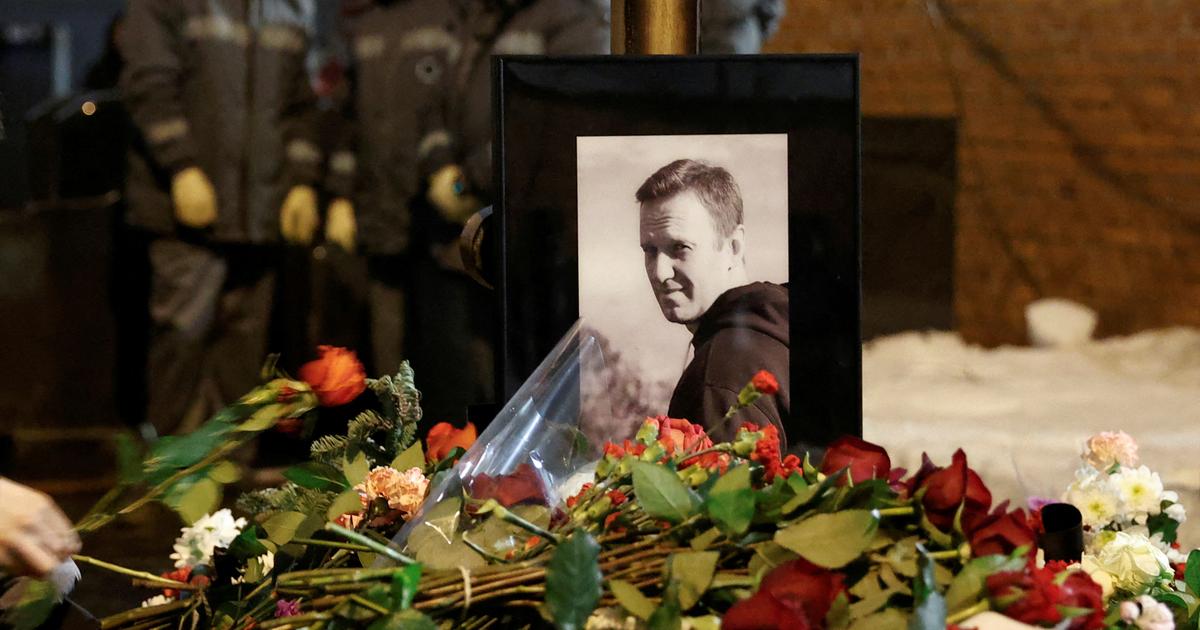He had deliberately chosen to return to Russia despite the risks he would run.
On January 17, 2021, Alexeï Navalny was arrested upon his arrival at Moscow airport.
A month earlier to the day, on December 17, 2020, in Berlin, the Russian opponent of Vladimir Putin met Jacques Maire, then a member of the Parliamentary Assembly of the Council of Europe.
In a Berlin hotel, Navalny spoke to this European elected official responsible for establishing the Kremlin's responsibility in the attempted poisoning of which he was the victim in August 2020. This hearing had been filmed, but was not intended to be made public.
After the death of the opponent on February 16, Jacques Maire decided to publish this recording, via
Libération
and LCI.
Read also Death of Navalny: his widow Yulia Navalnaïa takes up the torch of resistance to Putin
“The level of denial is absolutely incredible”
On August 20, 2020, while campaigning for local and regional elections, Alexei Navalny fell ill on board the plane bringing him back from Siberia to Moscow.
After the first symptoms, he quickly falls into a coma.
First taken care of in Siberia, he ended up being transferred to the Berlin Charité hospital.
“There is this absolutely crazy story with the German doctors who came to evacuate me [in Siberia – Editor’s note],”
he says
.
“
They were taken from the plane to the hotel by FSB agents.
Then they were taken from the hotel to the hospital.
(...) The doctors confirmed, as we later learned, that I was ready to be transferred.
Then the FSB exfiltrated the German doctors from the hospital.
(...) They then organized a press conference to explain that the German doctors had examined me and declared that I was not transportable.
After analyses, German and French specialists concluded that Navalny had been poisoned with “Novichok”.
Developed in Soviet military laboratories in the 1970s and 1980s, this deadly molecule causes nervous paralysis.
Novichok (
“new kid”
in Russian) had already been identified on Sergei Skripal and his daughter, poisoned near London in 2018.
Moscow has always denied any involvement.
“They will have documents confirming that it was Novichok,”
Navalny explains in the interview,
“and they will say publicly: 'We have documents that show that there is no confirmation that it was Novichok.”
The level of denial, the level of lying is absolutely incredible in this case.”
Read alsoIn Russia, the muffled tribute to Alexeï Navalny
“It was a direct order from Putin”
Moscow had claimed that examinations had not revealed the presence of any poison when the opponent was hospitalized in Siberia.
But the method used clearly bears the signature of the Kremlin.
“The poisoning, unlike the car accident, leaves a lot of room for speculation,”
explained Putin's opponent
.
(...) And the second objective, perhaps the main one, on the choice of poisoning: it is terrifying.
People are starting to get scared.
(...) Even here in Europe, some European politicians say to themselves: "We can just put a product on my door and I die."
At the same time as his meeting with Jacques Maire, Alexeï Navalny had trapped one of his poisoners by telephone from Berlin.
The Kremlin's sworn enemy posed as an assistant to Nikolai Patrushev, a close friend of Vladimir Putin.
Then he told Konstantin Koudriavtsev, an FSB chemical weapons expert, that he needed his testimony to write a report.
Koudriavtsev then revealed that the poison had been placed inside his underwear.
The FSB had claimed that it was a “
falsification
”.
“It’s like in the Khashoggi affair, when they protect the sponsors,”
Navalny says in the recording
.
Everyone knows who ordered Khashoggi's assassination.
But they pursue the little hands and protect the order givers.
In my case, (...) I am completely sure, it was a direct order from Putin.
So they protect everyone who participated.
(...) They were waiting for an opportunity, because I always travel accompanied.
(...) It's easier to poison food.
But several people would have died and it would be complicated to explain with diabetes, right?
Also read: Renaud Girard: “Navalny’s death, worse than a crime, a mistake”
“I never thought it was Novichok”
Alexeï Navalny established himself in the Russian political landscape by coming in second position in 2013, during the election for mayor of Moscow.
Subsequently, he set about denouncing the corruption of Vladimir Putin's regime through his Foundation Against Corruption (FBK).
But the opponent admitted in December 2020 that he would never have believed at the time in an assassination attempt.
“Before, if someone had told me that Putin wanted to kill me, I would have said no,”
he confides
.
I understand that I can be imprisoned, harassed, that kind of thing.
But killing people with a chemical weapon seems crazy.
And if, honestly, it wasn’t the laboratories that said it, I would never have believed it was Novichok.”
At the time of recording, Putin's opponent had already formed plans to return to Russia.
In the interview, he explains that he is aware of the risks he is taking by returning to Moscow:
“They are undoubtedly sending signals and messages: do not come back.
But I have no idea what will happen.
Will I be arrested at the airport?
Maybe later.
Maybe I'll arrive and they'll wait for everything to calm down.
And then they will arrest me.
Or maybe not.
I've no idea.
(...) It would be the best option for them, for me to become one emigrant among others.
(...) Generally speaking, if they killed me, it wouldn't change anything, because there are other people who are ready to replace me.
Imprisoned upon his arrival, he died on February 16, 2024 after three years of detention.

